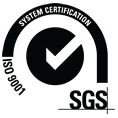EN 14683 Medical Face Mask Standard Explained
EN 14683 is a European standard that specifies the requirements and test methods for medical face masks, including surgical masks, in order to ensure their safety and performance. The standard is applicable to masks used by healthcare professionals in a clinical setting to protect both the patient and the wearer from the transfer of microorganisms, body fluids, and particulate matter.
EN 14683 outlines the requirements for the design, performance, and labelling of medical face masks. The standard includes two types of masks: Type I and Type II. Type I masks have a higher bacterial filtration efficiency (BFE) and are intended for use in low-risk situations. Type II masks have a higher BFE and are intended for use in moderate-risk situations.
The standard specifies the test methods for evaluating the mask’s BFE, breathability (differential pressure), splash resistance, and microbial cleanliness. The BFE test measures the mask’s ability to filter out bacteria, while the differential pressure test measures the breathability of the mask. The splash resistance test evaluates the mask’s ability to resist penetration by fluids, and the microbial cleanliness test ensures that the mask is free from microbial contamination.
In addition to the Type I and Type II classifications, the standard also includes a Type IIR classification for masks that have enhanced resistance to fluid penetration. Masks that meet the requirements of EN 14683 are generally considered to be of high quality and are widely used in the healthcare industry.
Benefits of Apparel Med EN 14683 Face Masks
Here at Apparel Supply we produce a EN 14683 Type IIR Surgical face mask which is the highest standard for medical face masks that are intended to be used by healthcare professionals and front line workers or in situations where there is a risk of bodily fluids being splashed on the wearer.
This type of mask provides a high level of bacterial filtration efficiency (BFE) and differential pressure, indicating that it is effective at filtering out bacteria and maintaining breathability. Type IIR masks must have a minimum BFE of 98% and a maximum differential pressure of 5.0 mmH2O/cm2.
Additionally, they must meet specific requirements for splash resistance and microbial cleanliness. The “R” in Type IIR stands for “resistant,” indicating that the mask is resistant to fluid penetration. These masks are typically made from multiple layers of materials, including non-woven fabrics and melt-blown fabrics, and often feature ear loops or ties to secure the mask in place.
The EN 14683 Type IIR standard is widely recognized and used throughout the European Union for ensuring the quality and effectiveness of medical face masks.
FFP2 masks are designed to filter out at least 94% of airborne particles, including small droplets and aerosols that may contain the SARS-CoV-2 virus. They provide a better level of protection than regular face masks, which are primarily designed to prevent the spread of droplets from the wearer to others.
FFP2 masks have been approved for medical use and may be used by healthcare workers in certain high-risk situations, such as when caring for patients with confirmed or suspected COVID-19. However, it’s important to note that FFP2 masks are not designed specifically for medical use for this reason we have got our FFP2 mask additional tested for Splash resistance which wouldn’t be common in order FFP2 masks on the market. Splash resistance refers to a mask’s ability to resist the penetration of fluids, such as blood or other bodily fluids, during medical procedures. This is particularly important in healthcare settings where healthcare workers may be exposed to infectious agents.









